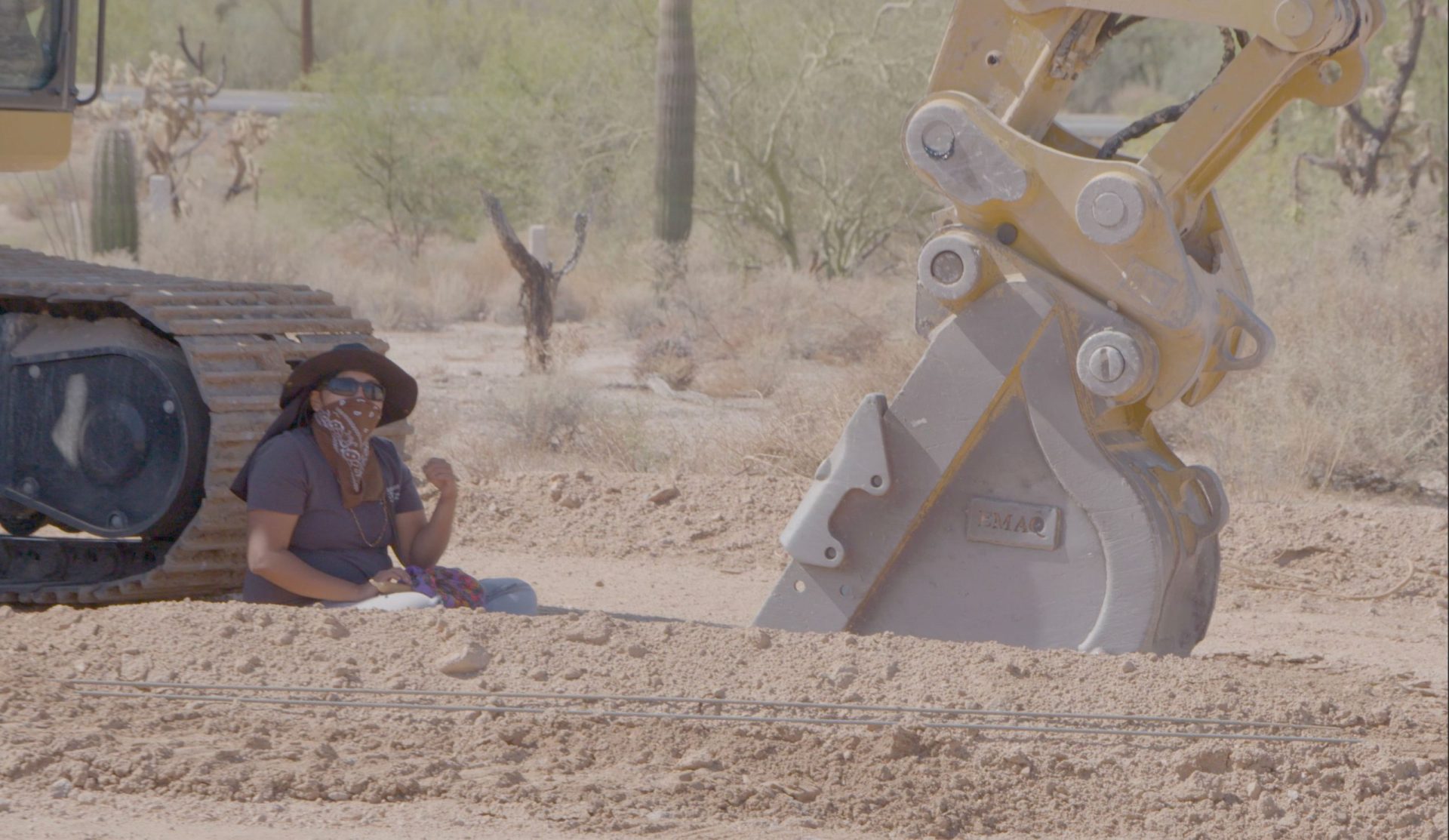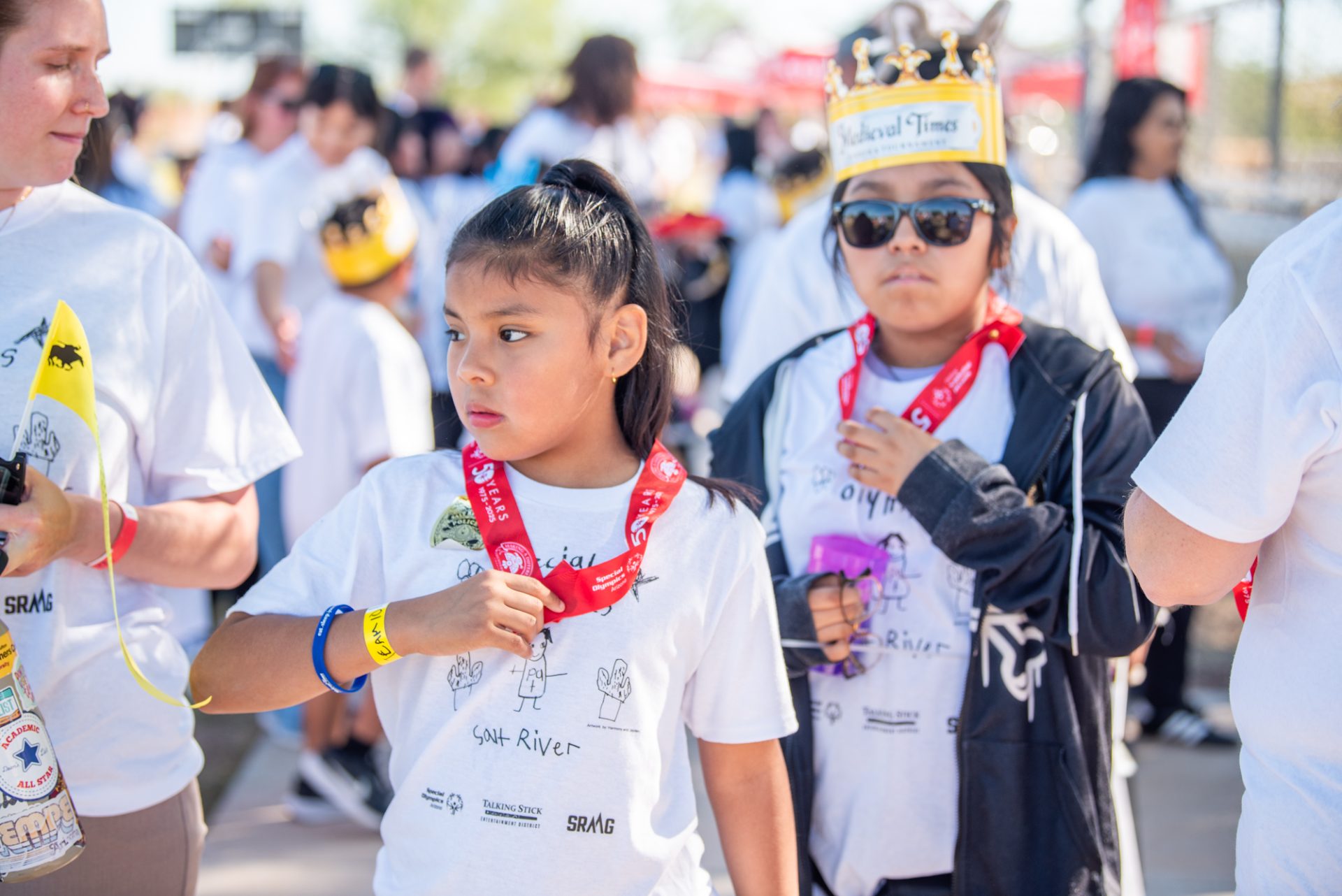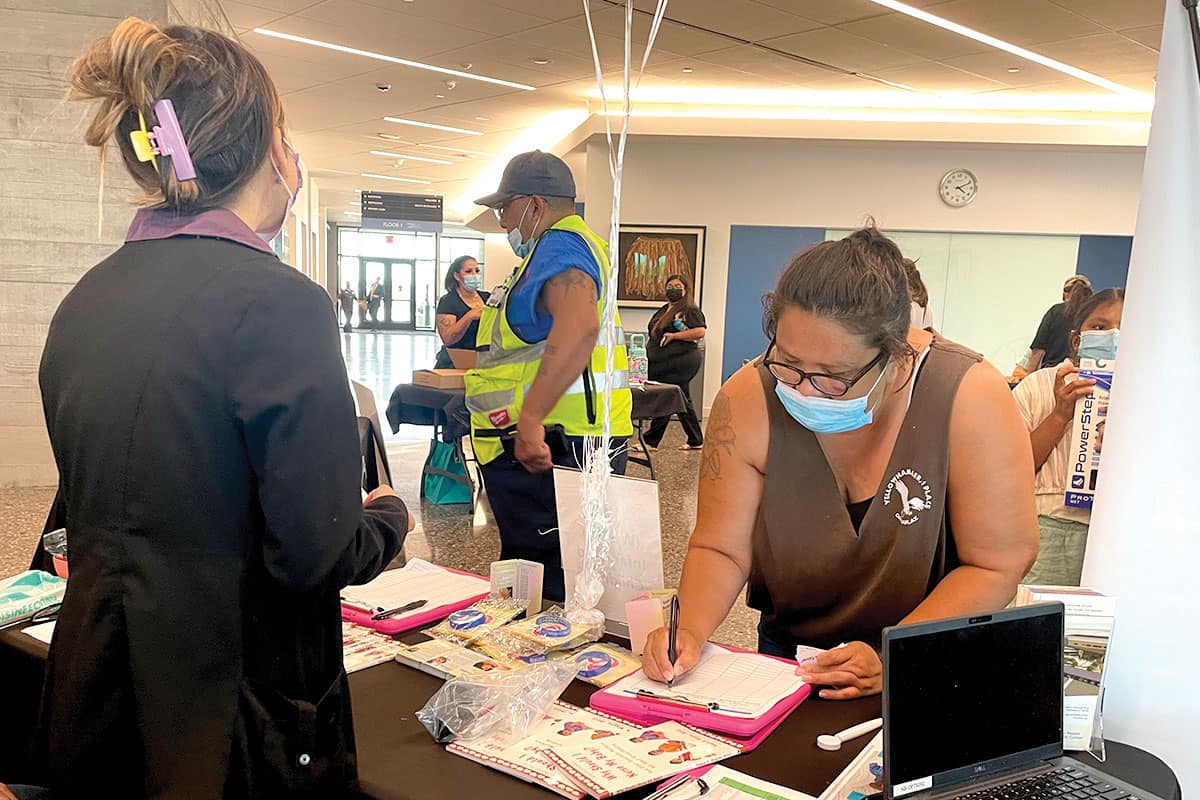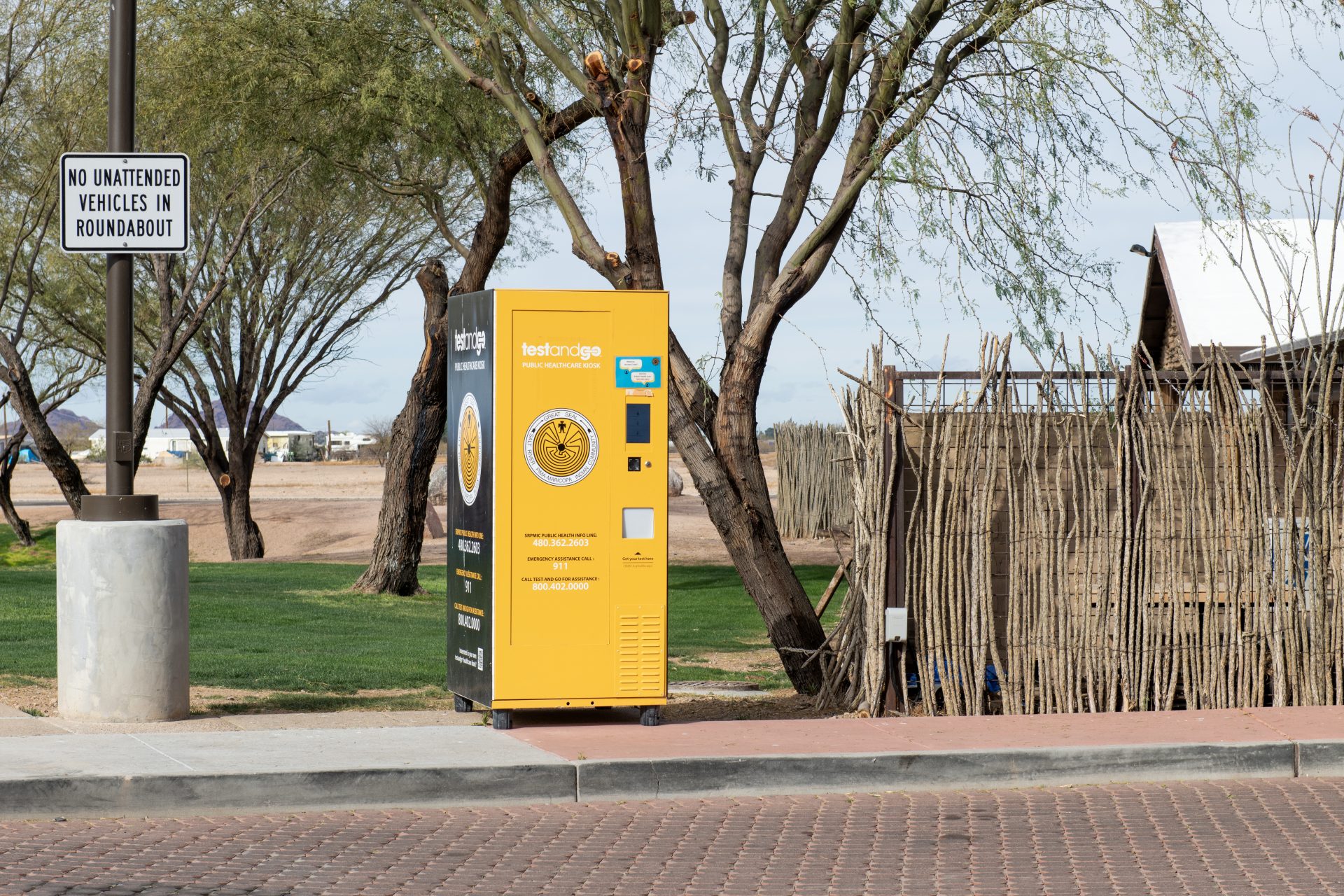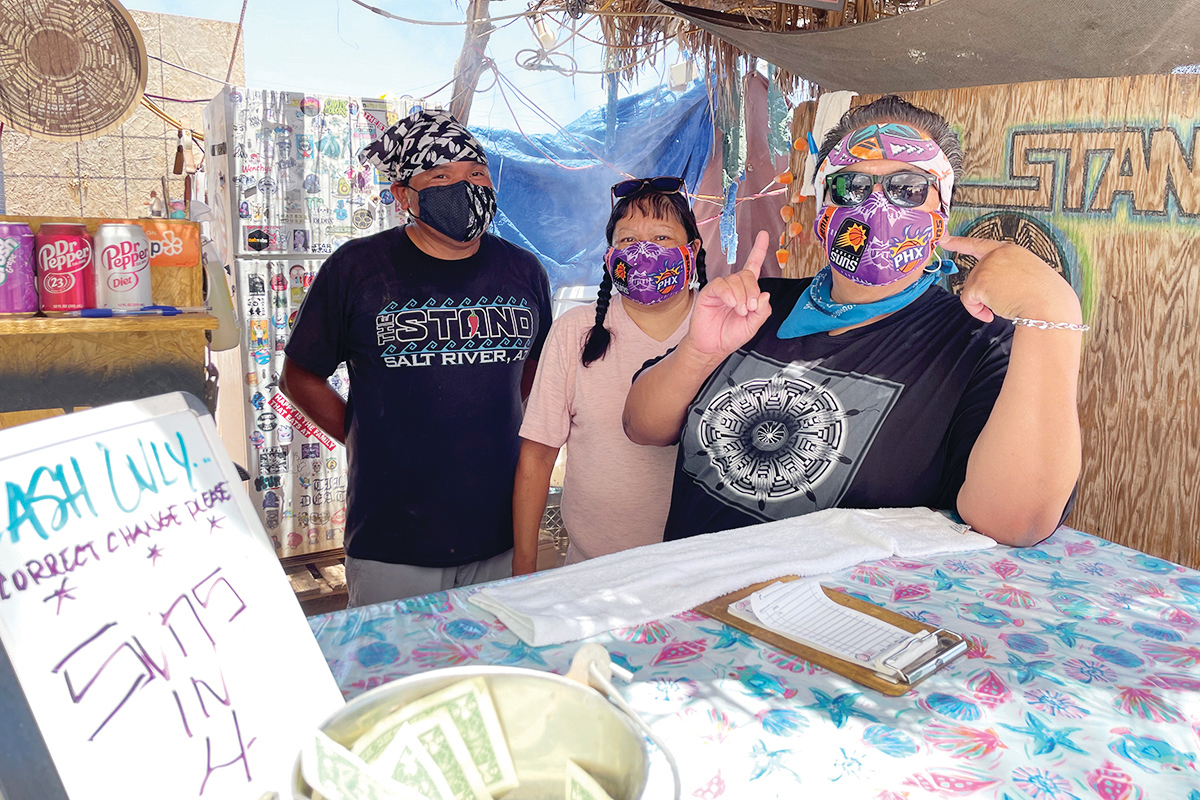VIEWS: 2497
March 2, 2022‘Not Guilty’ Verdict for Hia-Ced O’odham Woman Protesting Border Wall
Hia-Ced O’odham water and land protector Amber Ortega was found not guilty of misdemeanor charges from her attempt to put a stop to border wall construction near Quitobaquito Springs in September 2020.
Ortega and supporters celebrated and could be heard singing and praying in O’odham outside of the Evo A. DeConcini U.S. Courthouse in Tucson.
“This is our land, and our ways are not wrong,” said Ortega to supporters after the verdict.
In November, U.S. Magistrate Judge Leslie Bowman ruled after a bench trial that Ortega could not prove that the construction prevented her from practicing religious activities.
According to the Arizona Daily Star, in a new motion, Ortega’s lawyer Amy Knight argued that the judge’s understanding of what constituted Ortega’s religious actions had been too narrow and that defense of the land itself was a part of her religious practice.
After hearing arguments from Ortega’s defense team, Bowman reversed her previous ruling and ruled that Ortega was not guilty.
“Judge Bowman had ruled, after hearing all the testimony, that Amber was still sufficiently able to exercise her religion because she still had access to the sacred site at Quitobaquito Springs,” Knight told O’odham Action News.
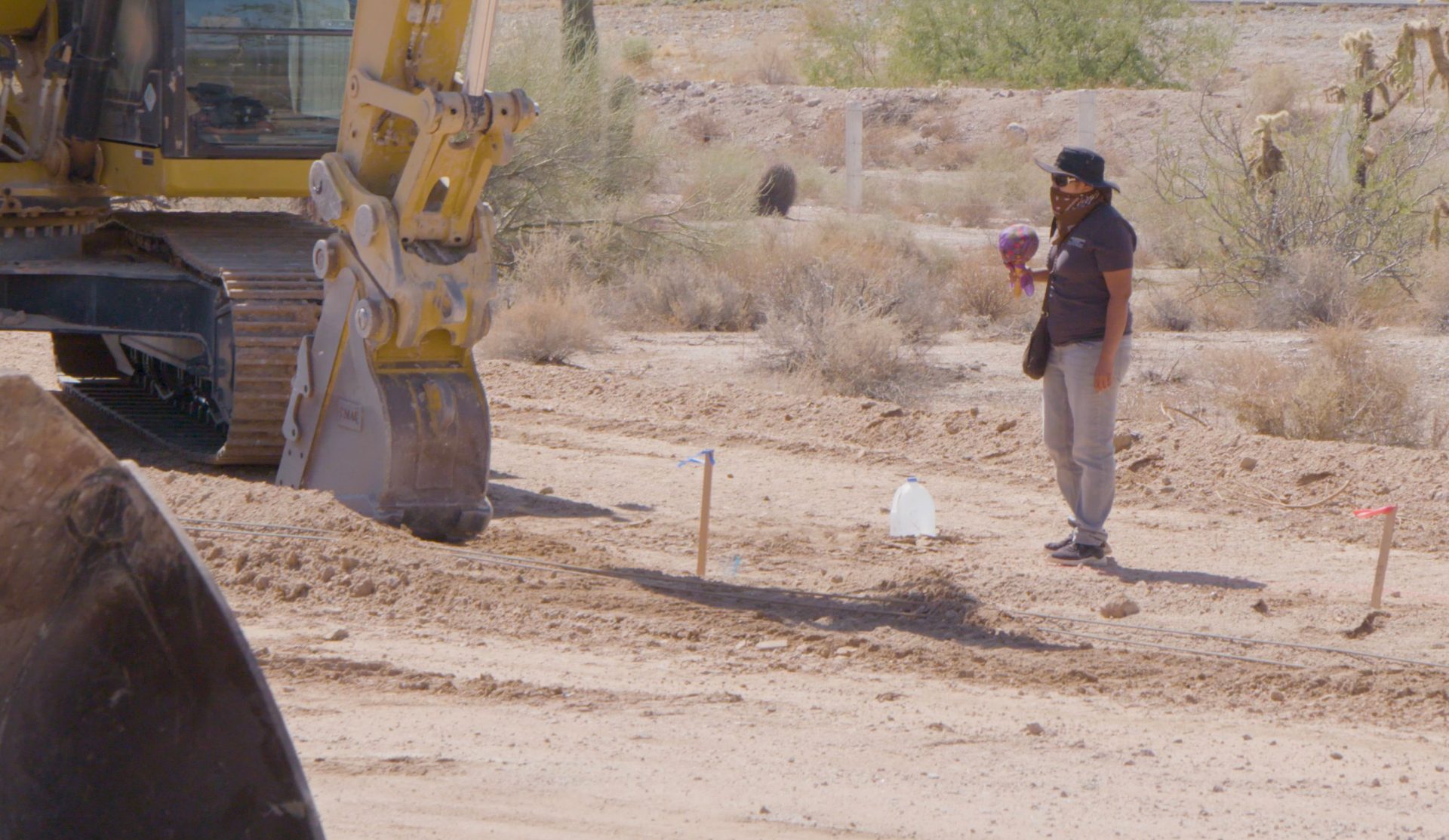
“It had not been explained [to Ortega] that although prayer and ceremony at Quitobaquito Springs is indeed an exercise of Amber’s religion, so is the act of defending that sacred land from destruction and desecration; so by charging her with crimes for the act of defending her land, the government really was interfering with her exercise of religion. I was able to come in when Amber asked me to represent her, and explain that. It then became the government’s job to prove that they really needed to enforce these laws against her anyway, and they failed to do that.”
Knight said that the outcome in this case has provided some hope that courts might recognize a wider, truer spectrum of religious acts of Indigenous people than they have in the past, including acts of defending the land.
“Of course, we know the courts will always have to balance these with what the law calls ‘compelling government interests,’ and surely in some cases that will be easier than others. But it certainly deomnstrates that there is a path forward, an argument worth making,” said Knight.
What does this case mean for future instances of similar situations for land and water protectors using the Religious Freedom Restoration Act (RFRA) or similar acts as a defense?
Knight said that it means there is now at least a roadmap for one way to approach these issues.
“RFRA is a tricky law, so having a model out there for a possible approach to its application in the land and water protector context will hopefully help people charged with crimes for these acts in the future think about how to frame their defenses. I also think that a victory like this sends a message to the federal prosecutors that there are good reasons not to press charges in cases like this,” said Knight.
U.S. Representative and Natural Resources Committee Chair Raúl Grijalva responded to the verdict via Twitter.
“Amber Ortega’s ‘not guilty’ verdict is welcome news,” Grijalva said. “I support her for demonstrating her right to protest the construction of an illegal, wasteful border wall and the Trump administration’s abuse of power in order to protect a sacred site integral to the Tohono O’odham Nation.”
Going forward, this ruling could affect how other cases involving land protectors and the borderlands are handled.
An O’odham Anti Border Collective representative who goes by the name of “G:ok” spoke to O’odham Action News in November 2020 after prayers and demonstrations protecting the land surrounding Quitobaquito Springs turned violent. Arizona Department of Public Safety troopers showed up in riot gear with batons and tear gas. “I come from a generation who didn’t have to go through a checkpoint. We say that we didn’t cross the border, but the border crossed us,” G:ok said at the time. “Talk to your elders about these stories that they hold onto. They can remember the times when people were more connected to the land and one another. The stories are alive and this border has kicked up a lot of our history.”

